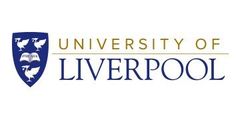Computer Science and Electronic Engineering with Year in Industry BEng (Hons)

Smart devices will shape the way we live now and in the future. The rapid pace of technological change and the diversity of modern applications require a broad educational background and a lifelong commitment to learning new and specialised skills.
This programme combines the core elements of Electronic Engineering with those of Computer Science, the intellectual discipline underlying all aspects of software development.
Teaching is divided between the Department of Electrical Engineering and Electronics and the Department of Computer Science. Combining elements from these two disciplines will equip you with both an added breadth of knowledge, and greater specialisation. Our graduates are in demand because of their fluency both in the language of electronic engineers as well as that of computer scientists, enabling you to bridge the gap between software systems and the real world.
Programme in detail
During Year One you will be introduced to the fundamentals of electronics as well as the underlying principles and theory of computing. Your lecture modules will cover the core subjects of electronic circuits, digital electronics, Java programming and data structures.
In addition you will take modules such as mathematics and spend one day a week doing practical work in both the computer and electronics laboratories. This will give you excellent practical and transferable skills vital for subsequent years of the programme and invaluable in your future career.
The second year builds on the first with core modules in Software engineering, Database development, Digital electronics and Signals and communication systems. More time is spent in the electronics laboratory doing practical work to consolidate the knowledge learnt in lectures and partaking in an extended team project.
In your third year you will have the option of selecting advanced modules from either department according to your chosen area of specialisation. Electronics options include Verilog digital system design, Digital control, Data communications and Optical information systems. Typical computer science options are Biocomputation, Image processing, Computer vision and graphics, Advanced web technologies and e-Commerce technologies.
Also in the final year, you will undertake a 20week individual project. Recent projects have included ‘real-time GPS tracking of a vehicle fleet by mobile phones’, and a ‘mobile multi-user dungeon (MUD) game using SMS messaging’.
On HG6L, students spend their third year of study on industrial placement.
Stojant į šį universitetą dėmesys yra kreipiamas į pažymius ir egzaminų rezultatus. Brandos atestato vidurkis turi būti ne žemesnis nei 9 bei bent trys dalykai A lygiu ne mažesniu vidurkiu kaip 9 + trys valstybiniai egzaminai ne mažiau nei 80% (vienas iš trijų egzaminų negali būti anglų kalbos), (kai kurioms programoms gali reikėti didesnio vidurkio ir egzaminų rezultato).
Pažymių išrašas - jei dar nesi baigęs mokyklos, būtina prisegti pažymių išrašą. Smulkesnę informaciją kaip pildyti išrašą ir kada jis reikalingas, rasi čia. *
Brandos atestatas – jei jau esi baigęs mokyklą, išrašo nereikia, užtenka prie Kastu stojimo anketos prisegti savo Brandos atestatą.
Svarbu, jog anglų kalbos testo rezultatai uiversitetą pasiektų iki Liepos 31d.
Anglų kalbos žinias gali patvirtinti vienu iš šių būdų:
IELTS - 6.5 ir ne mažiau nei 5.5 visose užduotyse.
TOEFL – 90
Our degrees have excellent career prospects: 90% of graduates go on to graduate level jobs. Graduate employers include Siemens, BAE Systems, BT and Guardian Media Group. Careers are many and varied and include Design Engineer, Systems Engineer, Medical Physicist, Postdoctoral Research Scientist and Radio Frequency Scientist. Some of our graduates go on to work in the industrial sector, in government and in education, whilst others enter non-technical professions such as banking, accountancy, management and law.
Work experience opportunities
Our Year in Industry programmes include a placement year during which you will spend time working in an engineering company. This is an excellent opportunity to gain practical engineering experience which will boost your CV. Many placement students continue their relationship with the placement provider by undertaking relevant projects when they return to the University and may ultimately return to work for the company when they graduate. The placement is assessed by two reports, a poster and an oral presentation.
Placements can be near or far, in the UK, Europe and China. Placements have been offered by the National Oceanographic Centre which is based on the University campus and CES companies based on Suzhou Industrial Park (SIP) in China. Students who take up a placement on SIP are offered accommodation at our partner University, Xi'an Jiaotong Liverpool University, based in Suzhou, China and they have access to all the facilities on the XJTLU campus.

